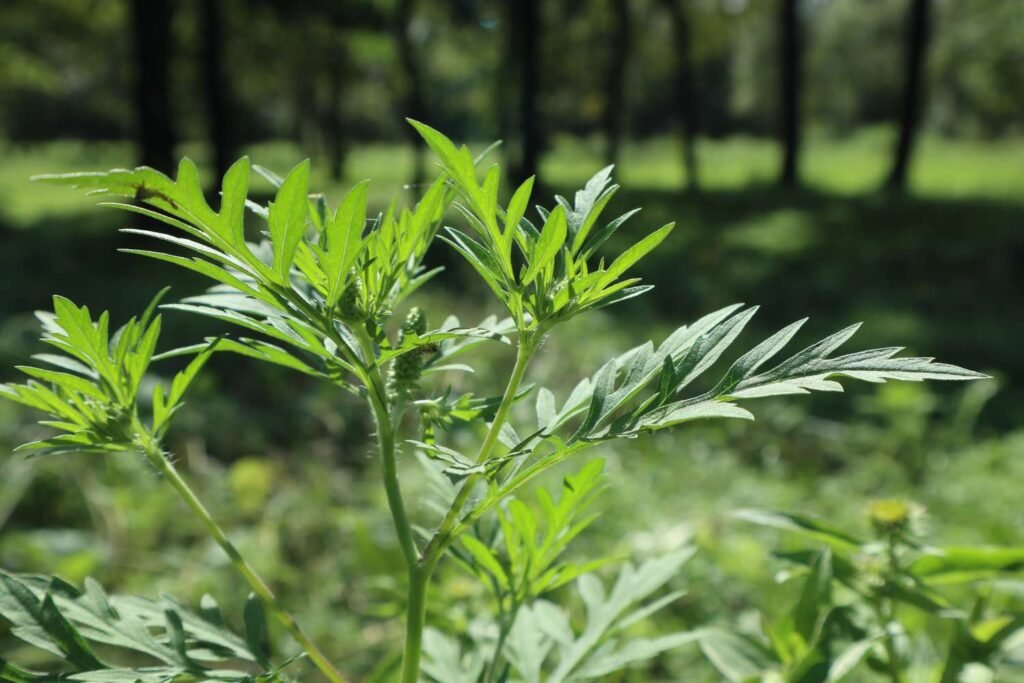
Wormwood has been a part of the human healing journey for thousands of years. I first came across wormwood while studying traditional remedies in herbalism. What struck me most was its presence in ancient civilizations like Egypt, Greece, and China. Back then, wormwood wasn’t just another herb—it was revered, almost mystical in its power. I remember thinking, “If this herb was so valuable to ancient healers, what does that mean for us today?” It became clear to me that wormwood’s historical use holds keys to understanding its true healing potential.
I like to imagine what it must have been like in those ancient times—how healers discovered its uses, maybe by observing animals or from trial and error. The stories are often lost in time, but we know wormwood’s significance has endured. As I dug deeper into its historical applications, I was amazed at how this single plant could serve so many different purposes. Whether as a digestive aid, a treatment for fevers, or a ritualistic tool, wormwood found its way into some of the most advanced medical systems of the ancient world. It’s humbling to think that these practices were the foundations of what we now call natural medicine.
There’s something special about using an herb that’s been passed down through the ages. Whenever I work with wormwood, I feel connected to a long lineage of healers who understood the power of plants. That connection, to me, is a reminder that nature’s medicine has always been here, waiting for us to rediscover it. So, let’s dive into the rich history of wormwood and how ancient civilizations used it to heal and protect their people.
Wormwood in Ancient Egypt: A Sacred Medicine
The ancient Egyptians had a profound respect for nature, and wormwood was no exception. In fact, it was considered sacred, especially in its role as a medicine. Wormwood was used to treat digestive ailments and fevers, but what’s most fascinating to me is its ceremonial use. It was often burned in temples to cleanse the air and ward off evil spirits. I find this particularly interesting because the more I study ancient herbal practices, the more I see that they combined physical healing with spiritual cleansing. To the Egyptians, there was no clear line between the body and the spirit.
There’s a story I once heard from an Egyptian herbalist who said that wormwood was used in mummification rituals, not only for its preservative qualities but to guide the soul safely into the afterlife. Whether or not that’s true, it speaks to the reverence Egyptians had for the plant. Wormwood wasn’t just a remedy for physical ailments; it was believed to have the power to protect the soul.
Even today, I think we can appreciate wormwood’s protective nature. While we might not use it in the same ritualistic ways, the plant still “guards” us, whether it’s against digestive issues or parasites. That’s why I always keep wormwood around—it’s a small piece of ancient wisdom that’s still incredibly relevant.
Wormwood in Ancient Greece: The Herb of Artemis
The Greeks had their own relationship with wormwood, which they named after the goddess Artemis—hence the scientific name Artemisia absinthium. Artemis was the goddess of the hunt, wilderness, and childbirth, and I can’t help but think there’s something symbolic about wormwood being connected to her. It was as if this herb, much like Artemis herself, was wild, powerful, and not to be underestimated.
In Greek medicine, wormwood was primarily used as a digestive tonic and to treat fevers. Hippocrates, often called the father of modern medicine, recommended wormwood for various conditions, including pain relief. I find it interesting that even back then, the Greeks understood the herb’s bitter properties and how it could stimulate digestion. They knew that the bitterness of wormwood was its strength, much like how modern herbalists use bitters today.
One of my favorite Greek stories involving wormwood is about a healer who used it to cure a soldier’s digestive illness. The soldier had traveled far and wide, consuming strange foods that left him sick. After being treated with wormwood, he was said to have been restored to full health, ready for battle once again. It’s stories like these that make me appreciate how much the ancients knew about plants—often through sheer observation and trust in nature’s wisdom.
Wormwood in Traditional Chinese Medicine: Balancing the Body
Traditional Chinese Medicine (TCM) has long embraced wormwood, particularly for its warming and stimulating effects. In TCM, wormwood is used to “dispel cold” and “invigorate the blood.” I remember learning from a TCM practitioner that wormwood is often prescribed for digestive issues, irregular menstruation, and even to alleviate pain. What I love about TCM’s approach to wormwood is how they view it as an herb that brings balance to the body.
In Chinese medicine, the use of wormwood extends beyond just ingestion. It’s also used in moxibustion, a technique where dried wormwood, or moxa, is burned on or near the skin to stimulate acupuncture points. The heat generated by burning moxa is believed to penetrate deeply into the muscles, promoting circulation and healing. I’ve tried moxibustion a few times, and while it feels quite different from acupuncture, I found it incredibly soothing. There’s something comforting about the warmth that wormwood provides in this form—it’s like a gentle reminder that healing can be as much about warmth and care as it is about taking herbs.
In modern times, many TCM practitioners still use wormwood to treat digestive disorders and menstrual pain. The herb‘s bitter and warming qualities are ideal for conditions where stagnation or coldness in the body is thought to be the root cause. It’s always interesting to me how these ancient practices continue to find relevance in today’s world.
Wormwood‘s Journey from
Ancient Medicine to Modern Use
The journey of wormwood from ancient times to today is a fascinating one. What strikes me most is how consistently it has been used for similar purposes across different cultures. Whether in Egypt, Greece, or China, wormwood was—and still is—valued for its ability to heal and protect. It was used for digestion, fevers, and even to cleanse the spirit. That’s a lot of responsibility for one little herb, don’t you think?
Personally, I love using wormwood for digestive support, but I always keep its history in mind. When I sip wormwood tea, bitter as it is, I think about the countless people who came before me—healers, warriors, mothers—all relying on this humble herb to help them through difficult times. That connection, to me, is what makes using wormwood so special.
Today, we may not use wormwood in the exact same ways as the ancients, but its spirit lives on. We still value its ability to protect us from illness, soothe our digestive system, and, in some cases, bring warmth to our bodies. And if that’s not proof of its timelessness, I don’t know what is.
Conclusion: A Timeless Healer
Wormwood has stood the test of time, from ancient Egypt and Greece to Traditional Chinese Medicine, and now, into our modern world. It’s an herb that has continually shown its value across cultures and generations, offering healing that goes beyond the physical. Whether used to cleanse the spirit in ancient rituals or to ease digestive discomfort today, wormwood’s place in natural medicine is undeniable.
As someone who’s worked with wormwood for years, I always find myself amazed at how much this herb continues to teach us. It’s a reminder that nature’s medicine is not only ancient but also incredibly relevant to our lives today. If you’ve never used wormwood before, I encourage you to try it, but always remember its rich history—there’s so much more to this herb than meets the eye.









